Wakefield by-election: What matters to local people?
- Published
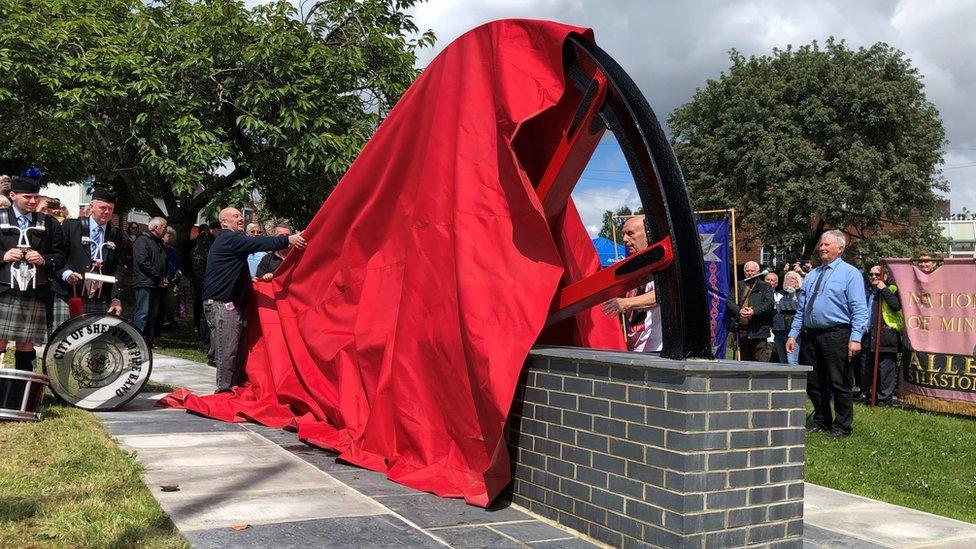
Lupset's mining memorial was unveiled in late May, dedicated to those who worked in the industry
Wakefield's upcoming by-election - the northern leg of a 23 June double-header - is seen by many as a litmus test for Boris Johnson's leadership and a must-win for Keir Starmer. But while questions over the futures of both leaders and their parties loom large over the contest, it can be easy to overlook another: What matters to people in Wakefield?
Far away from the Westminster bubble - 180 miles up the M1 motorway, in fact - Wakefield is a district that thrived on its mill and coal mining industries, with the closure of its final pit 20 years ago seeing the loss of thousands of jobs and the end of an era.
Since then, it has ploughed on but struggled to escape the shadow of its bigger neighbours such as Leeds and Bradford. Many locals say a new, post-industrial identity has eluded the city and they are keen for someone to help Wakefield move on from the past and forge a new future.
But there are also more immediate concerns, such as opportunities for young people, the district's fragmented, beleaguered public transport system and the sense that Wakefield could have more to offer if it had the right tools.
So what makes Wakefield tick?

'What did we replace it with?'
Memories of Wakefield's former industries run deep and, a fortnight ago, hundreds gathered on the Lupset estate, two miles outside the city centre, for the unveiling of a memorial dedicated to those who worked underground in six nearby collieries.
Just a short walk away from the brick-mounted winding wheel, at St George's Community Centre, Berni O'Brien wonders what it all means.
"A lot of people here still identify with the mining or the mills community we had here.
"I don't really want to hark back to Wakefield's mining past, but we need to ask: 'What did we replace that with?'" she asks.
"The answer is not a great deal really, other than warehousing jobs."
"When you were younger you were able to get jobs in your own community rather than on big industrial estates with no personality."
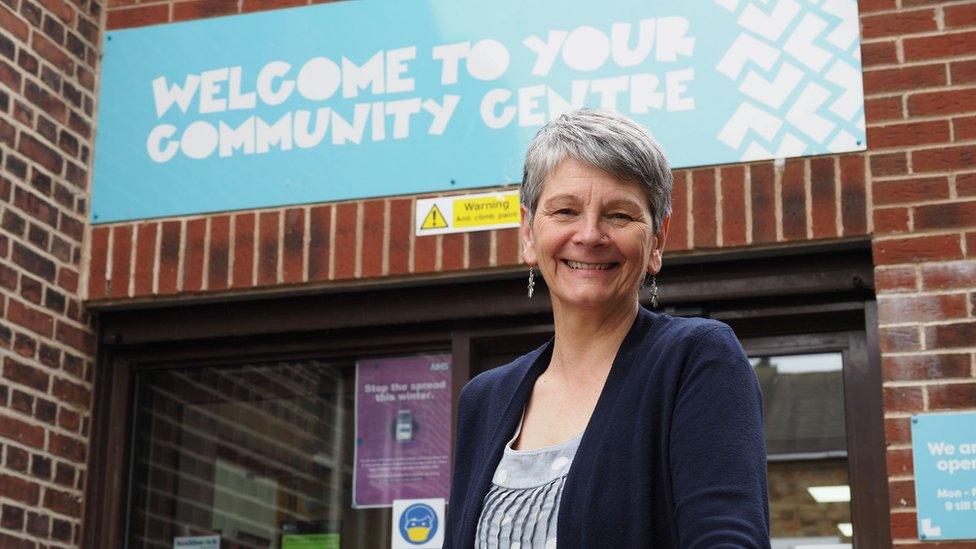
Berni O'Brien, chief executive of St George's Community Centre in Lupset, says "Wakefield has some brilliant people, but they don't always recognise themselves as being brilliant"
Ms O'Brien is chief executive of the centre, which opened in 1997 and grew from humble beginnings to a one-stop shop for Lupset, providing work for 70 locals alongside four nurseries, health and wellbeing programmes, and confidence-building sessions.
"Wakefield has some brilliant people, but they don't always recognise themselves as being brilliant," Ms O'Brien says.
"For long enough there have been all sort of things said about the city to make people think, 'I'm not worthy' - we're about telling people: 'Of course you are, and if you need some help, come and ask for it'."
The latest Department for Work and Pensions figures show about 42% of those claiming Universal Credit in Wakefield are in employment, with the quality of jobs available in the city a key concern for first-time voters.
'We rely on buses'
At Wakefield College, 18-year-old A-Level student Josh Waddington is currently in exam mode as he considers his future.
"I do like Wakefield as a city, I've lived here all my life and I don't really want to leave. But if you want the higher-paid work you have to go elsewhere like Manchester, Leeds, Bradford, Sheffield," he says.
Josh, who voted during the local elections in May but will vote for an MP for the first time on 23 June, continues: "We don't have a university, our transport links aren't very good, we lost HS2. Wakefield just needs to be given more attention. "

A-Level students Alyssa Thibeault and Josh Waddington are considering their next career moves, with the quality of jobs available in their home district a key issue for them
Transport is a recurring topic in the college corridors, with students struggling to get into the city for their all-important morning exams due to an indefinite bus driver strike.
Alyssa Thibeault, 17, who lives in Castleford about 10 miles away, says she had managed to get in to college but had relied on a lift.
"So I was in five hours before my lessons even started," she says.
"A lot of students rely on buses if parents are working full-time and start early in the morning."
'Wakefield deserves better'
The city, situated next to the M1 and the East Coast Main Line, is well-connected when it comes to long distance travel, but the problem is getting across the district.
"Getting to Leeds or even London is really easy, but local travel is a real issue," says Anand Menon, director of the UK in a Changing Europe think tank.
"A lot of the communities in Wakefield made perfect sense when there was a pit, but now they are completely cut off from the jobs."
Mr Menon, who grew up in the city before moving to London, recently returned home to discuss government promises of levelling up as part of a Radio 4 documentary.
"If you compare it to some places in the south and the scale of change and wealth you see elsewhere, the difference is utterly striking," he adds.
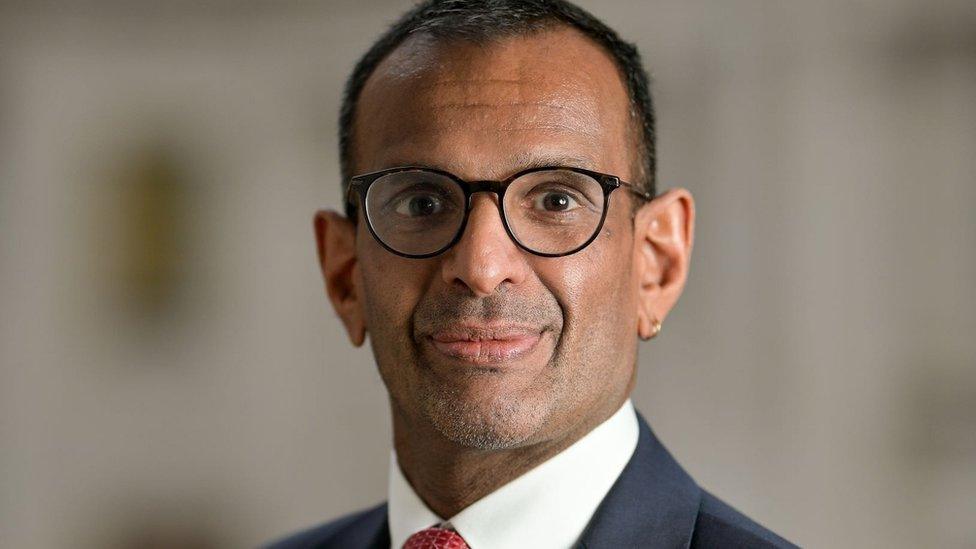
Anand Menon, UK in a Changing Europe director, says "there's no 'one size fits all' answer to Levelling Up"
The Covid-19 pandemic saw unprecedented demand put on the voluntary sector in the city, yet Wakefield has one charity per 1,000 of the population - more than half the England average.
It was this simple fact which prompted the commissioning of a huge research project looking at health and wellbeing provision across the district.
"It's a pretty black picture we're painting and Wakefield's residents deserve better," says Kath Lindley, from Wakefield & District Health & Community Support (WDHCS).
The independent grant-making organisation found deep health inequalities within the district, with a ten-year difference in life expectancy between residents in the village of Sandal and those just seven miles away in Fitzwilliam.
Ms Lindley continues: "Areas of higher deprivation in the district have fewer voluntary organisations - the places that need them the most.
"We've got the perfect storm with the cost of living crisis, the economy post-Covid and where Wakefield is positioned in West Yorkshire in terms of standing."

Key stats from What's Up Across Wakefield District?
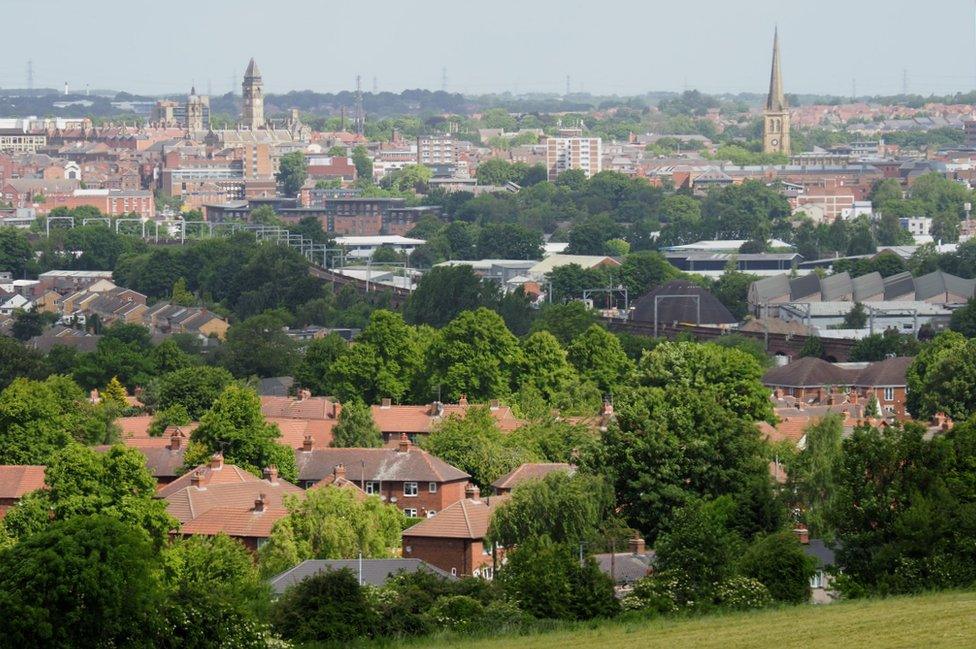
Recent research has found health inequalities in the district, where life expectancy in some areas is ten years higher than others
On average 24% of all children in Wakefield live in poverty
Wakefield has the highest school suspension and exclusion rates in West Yorkshire
It has the highest regional average for unsecured personal lending and one of the highest debt to income ratios in the UK
Large housing developments without investment in infrastructure was highlighted as a concern for community connections
Many bus services to more remote areas of the district have been cut
Source:, external Wakefield & District Health & Community Support/Rocket Science

Unlocking the arts
One of the industries hit the hardest by the pandemic was undoubtedly performing arts, but early June saw Wakefield's Long Division festival returning once again, attracting music fans from across West Yorkshire and beyond.
The event marked its 10th anniversary in 2021 and has seen more than 1,000 performers including Billy Bragg, local heroes The Cribs and The Fall grace the city's stages.
"In the Wakefield district, around 350,000 people, at present there's currently only one dedicated music venue which promotes original music. That's it," says Long Division director Dean Freeman.
"What we've always done is worked around it, we've thought - we'll use that art gallery, chapel and abandoned library instead."
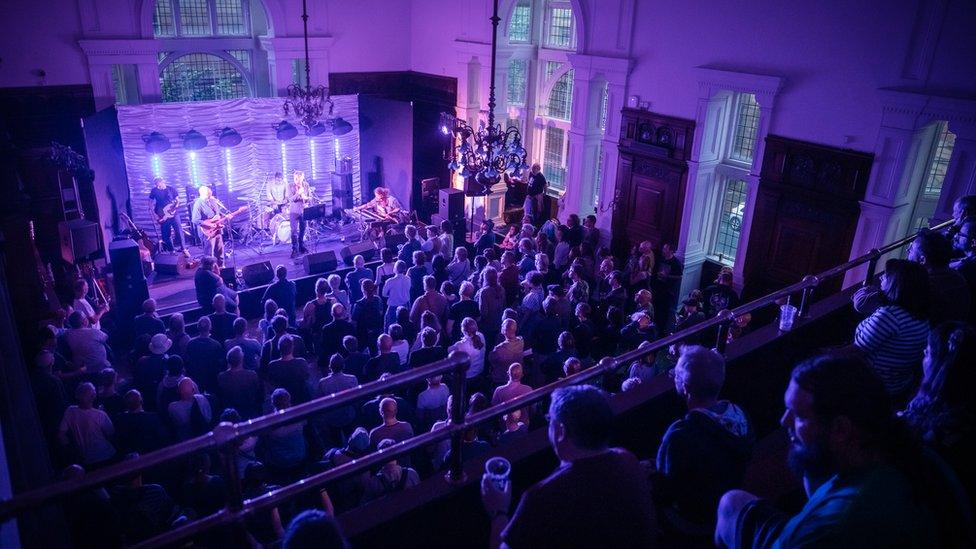
Long Division festival, which often attracts up to 4,000 gig-goers to Wakefield, saw performances from bands including British poet laureate Simon Armitage's LYR in early June
Wakefield missed out on becoming the UK's next City of Culture, with nearby Bradford emerging victorious, but the city council has announced a year-long celebration of culture in 2024 instead.
The district has substantial cultural credentials, housing the 500-acre Yorkshire Sculpture Park, the Hepworth Wakefield, a month-long literary festival along with Long Division's multi-venue event.
Next to the Hepworth Wakefield, which attracts about 250,000 visitors a year, construction workers are busy turning a set of Grade II-listed mill buildings into Tileyard North, a giant hub for the creative industries promising to become the UK's largest creative community outside of London.
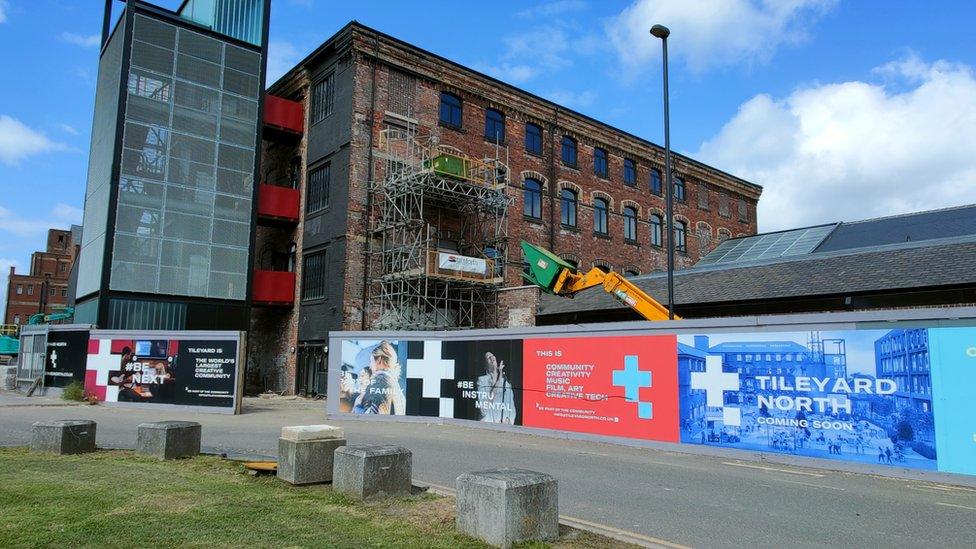
Tileyard North promises more than 30,000 sq ft for professional music studios, flexible business space and to provide more than 500 creative jobs
"It's going to be absolutely massive," says Mr Freeman, who hopes the addition will help inspire young people passionate about music and draw in those in the district who don't usually take an interest.
"It's about overcoming that old fashioned view of culture that it's for kids and young people," he adds.
"It's accessible - you don't have to jump straight up to that crazy sculpture in the Hepworth."
Something to get behind
Another area where Wakefield lags behind some of its larger neighbours is football. While the district's young rugby fans are well served, those who prefer football have to look further afield for a professional side to get behind.
Wakefield AFC is fairly new on the scene, and its launch - just months before England's first lockdown in March 2020 - was hampered by Covid restrictions.
It was an unwelcome set-back for sporting director Adam Lockwood, who expects a few more along the way as the team pushes towards an ambitious aim.
"We want to eventually bring a professional football team to the city of Wakefield, which is one of the biggest cities in the UK without a professional side," says the ex-Doncaster Rovers player.
"People who know me say 'you must be mad', and we do have years and years of progress to make, but if we get the backing of the city we can become a big force eventually, I genuinely believe that."
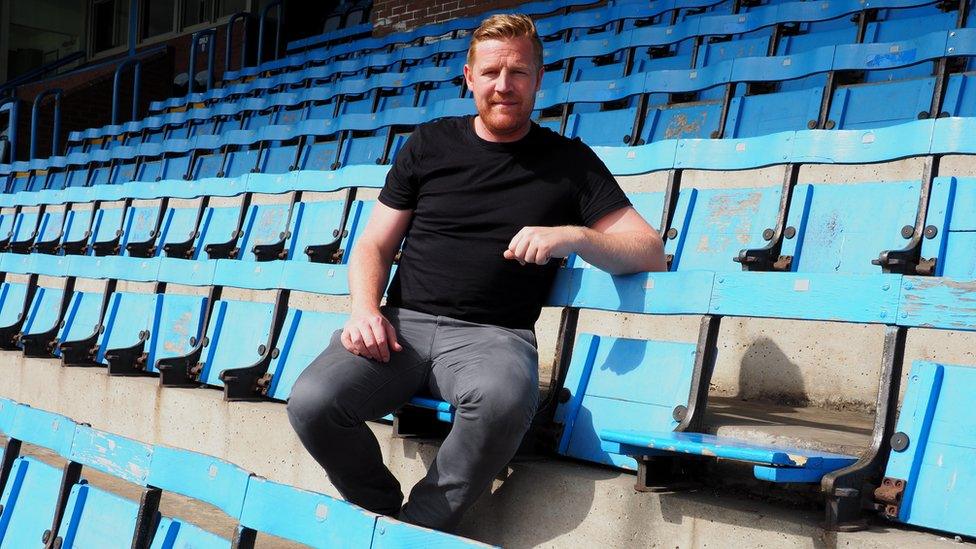
Adam Lockwood, sporting director at Wakefield AFC, hopes to lift the side from the foot of England's football ladder
The club, which has a men's team and a women's side, hopes to one day rival attendances seen at the district's professional rugby league sides and to inspire football-mad children currently distracted by nearby Leeds United and Huddersfield Town.
"We've gone from crowds of 50 to 700 in a season and we want to keep that going," he says.
"We're all on this journey together - it's not just about the club, it's helping the area, the city and hopefully we can bring exposure to Wakefield."
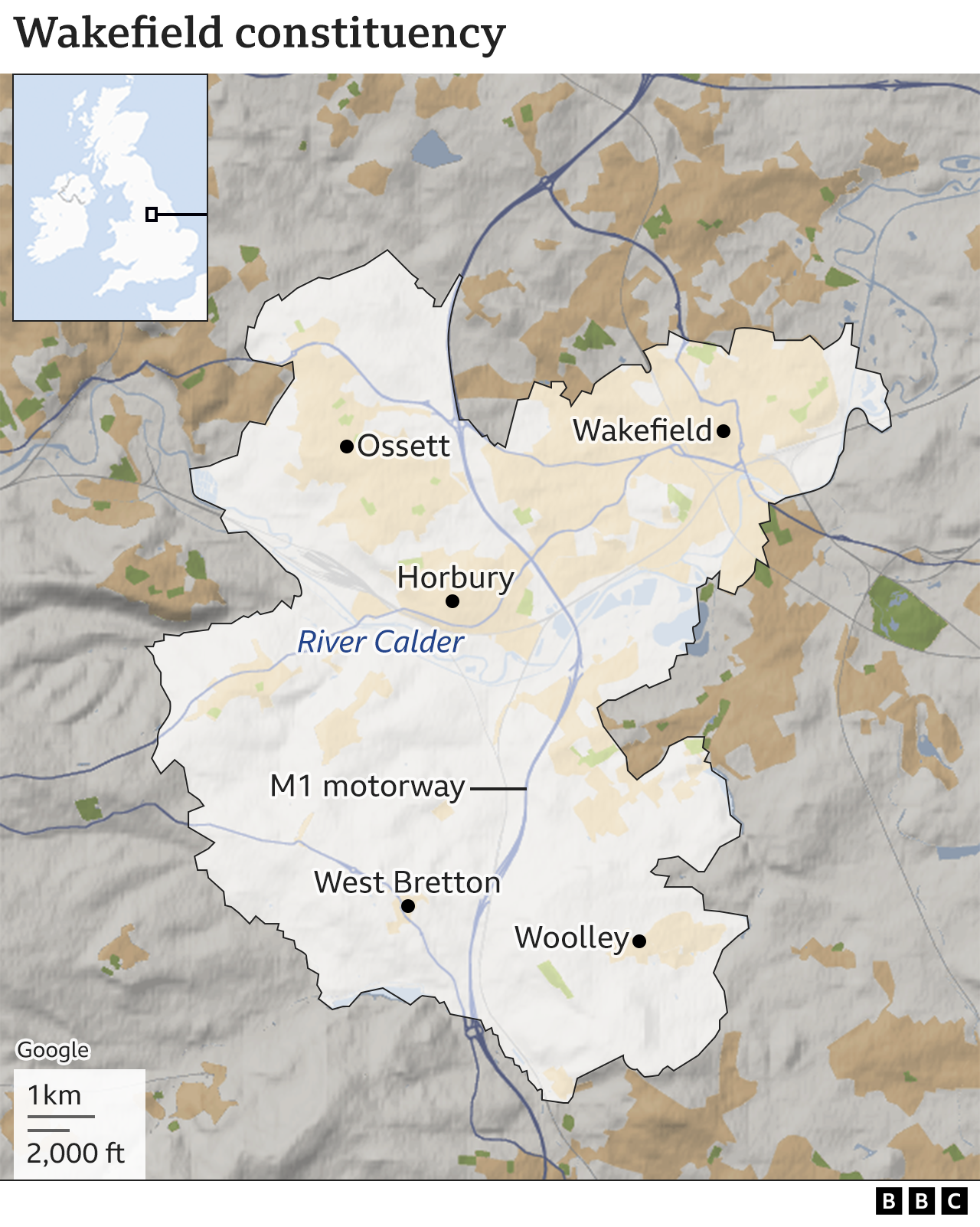

Below is the full list of candidates for the Wakefield byelection (listed alphabetically by surname):
Nadeem Ahmed, Conservative Party
Akef Akbar, Independent
Paul Bickerdike, Christian Peoples Alliance
Mick Dodgson, Freedom Alliance. Real People. Real Alternative
Sir Archibald Stanton Earl 'Eaton, The Official Monster Raving Loony Party
Jayda Fransen, Independent
Jordan James Gaskell, UK Independence Party
David John Rowntree Herdson, Yorkshire Party
Therese Hirst, English Democrats
Christopher Richard Jones, Northern Independence Party
Simon Robert Lightwood, Labour Party
Jamie Luke Needle, Liberal Democrats
Ashley Theo Blue Routh, Green Party
Ashlea Simon, Britain First
Chris Walsh, Reform UK

Follow BBC Yorkshire on Facebook, external, Twitter, external and Instagram, external. Send your story ideas to yorkslincs.news@bbc.co.uk, external.
Related topics
- Published26 May 2022
